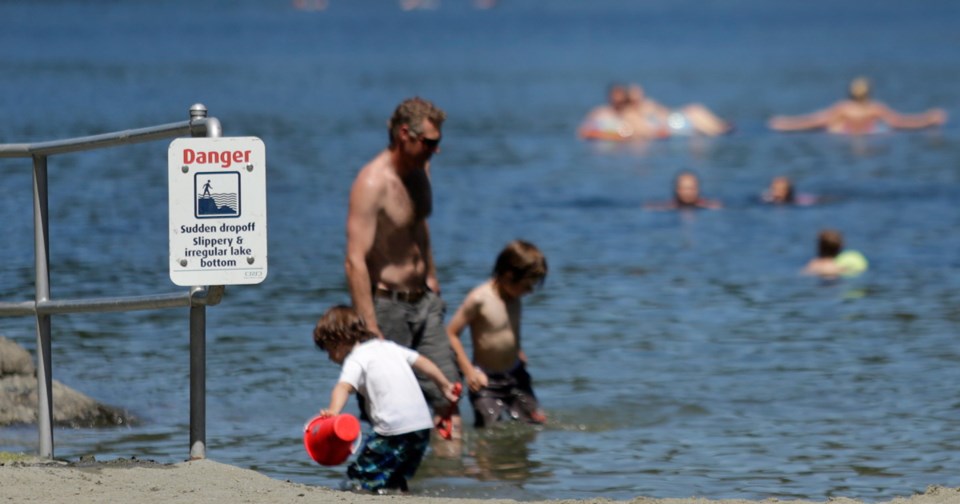There are no immediate plans to put lifeguards back on duty at Thetis Lake Regional Park following the drowning Saturday of a 21-year-old foreign student, said Larisa Hutcheson, general manager of parks and environmental services with the Capital Regional District.
The man was at the lake with friends when he got into trouble about 12:20 p.m., West Shore RCMP said. Witnesses and emergency responders tried to revive the man.
He was taken to Victoria General Hospital where he died. His name has not yet been released.
There were lifeguards at the popular swimming spot until 2003, but the service was discontinued partly because of challenges recruiting skilled people, Hutcheson said Monday.
Lifeguards were also distracted by bylaw-enforcement issues such as alcohol, loose dogs and rowdy behaviour, she said.
Swimmers in trouble tended to be children who were not properly supervised by their parents, Hutcheson said.
“There was a real false sense of security with the lifeguards there,” she said.
The CRD will do a critical incident response debrief to assess how the incident was handled.
“There’s not going to be a formal review of services we provide at Thetis [Lake] at this time.... We’re not reconsidering lifeguards at this time,” Hutcheson said.
The onus is on the public to look after their own safety, she said.
Pictorial signs are important to notify foreign students and travellers to the dangers of areas, such as the underwater dropoff at Thetis Lake, she said.
“We’ll be going back and taking a look at those signs to make sure they’re as clear as possible,” Hutcheson said.
The presence of lifeguards dramatically reduces the number of drownings at swimming beaches, Wendy Schultenkamper, education director with the Royal Life Saving Society of Canada, said Monday.
“Our statistics show it’s something like 0.05 per cent of all drownings occur in lifeguard-supervised areas,” she said.
“But that being said, the bulk of the drownings that we do see would never happen in a lifeguard-supervised area anyway — such as tubing down the river or fishing boat accidents.”
The spike in drowning deaths this year — there have been 43 this year in B.C., double that of 2012 — is mainly due to hot weather attracting more people to lakes, river and ocean beaches.
People overestimate their swimming skills, Schultenkamper said.
“People perhaps have what they perceive to be good swimming skills in a perfect environment, like a pool, but often those skills are challenged outdoors, whether there’s fast-moving water or a dropoff,” she said.
“Perhaps they’re even injured, and then all of a sudden those skills aren’t as strong as they initially thought they were,” Schultenkamper said.
New Canadians and exchange students are four times more likely to be non-swimmers than Canadian students, a 2006 study said.
Schultenkamper urges people to research any area where they’re going to swim and be aware of hazards, such as currents, dropoffs and underwater obstacles.
Children should always be under direct, active supervision, she said.



